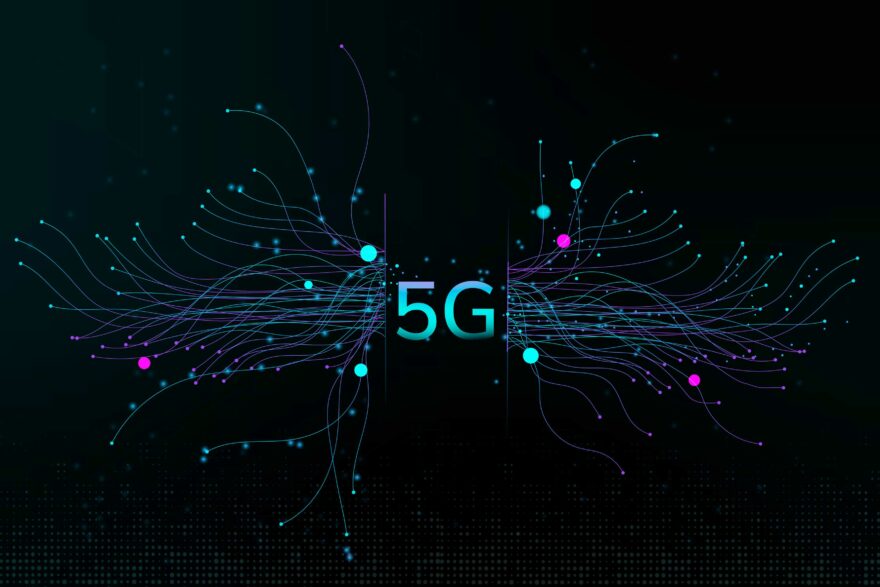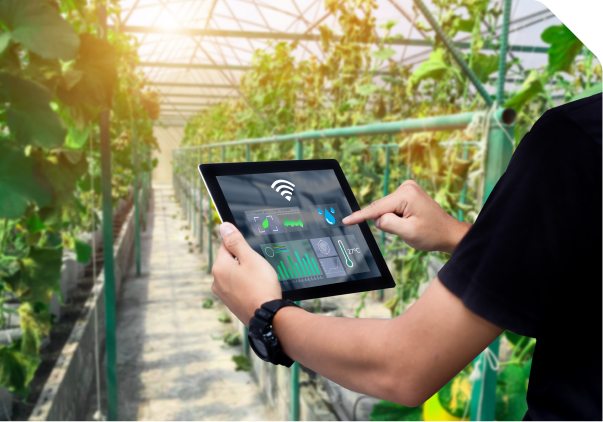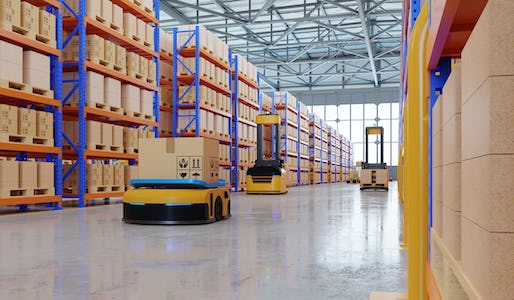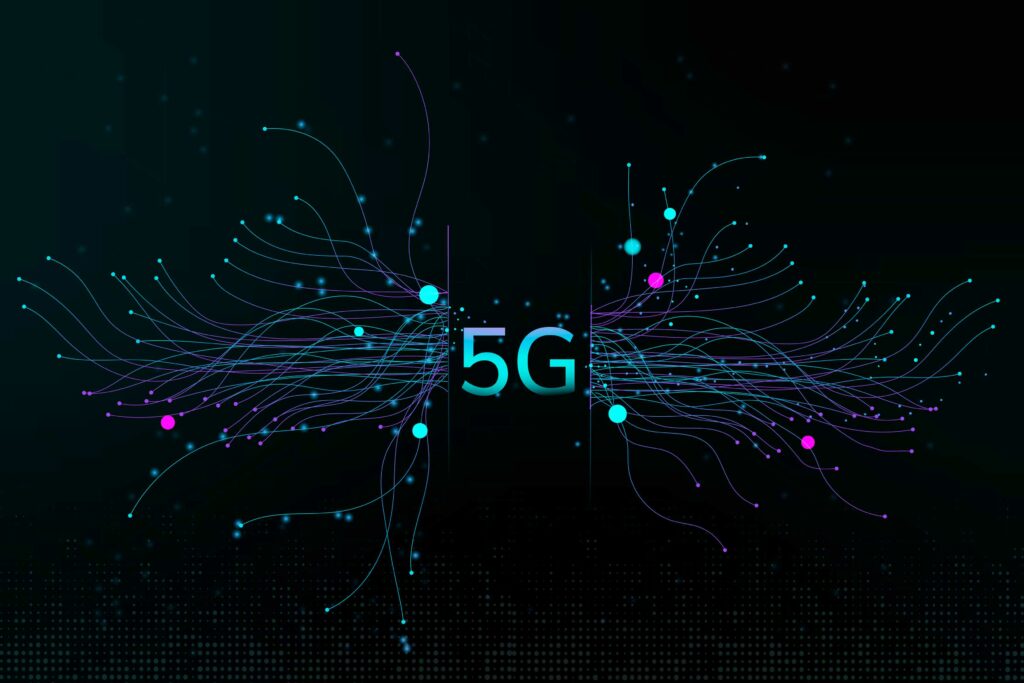As we usher in the 5th generation of wireless technology, aka 5G, is on the verge of completely changing the way we connect with the digital world. This technology is paving the way for digital transformation, which is not just about providing faster connectivity. It’s also about bringing a paradigm shift to the processes of entire industries, creating new avenues for innovation and forever changing the way our personal and professional lives.
In this blog post, we will discuss how 5G is transforming internet connectivity in 2024 across multitudes of industries.
1. Enhanced agricultural productivity
Smart agriculture is already underway, with state-of-the-art computing capabilities. Furthermore, IoT empowers data gathering and analytics, enabling well-informed decision-making. It also leads to cost and resource efficiency, producing higher yields. However, 5G internet service will take it up a notch by further extending the geographic reach of smart agriculture and reducing costs. It will further integrate with IoT-enabled devices on plants, soil, and irrigation systems to bring about revolutionary changes in agricultural systems.
2. Improved remote education
During the COVID-19 pandemic, many educational institutions turned to remote learning. It also highlighted the connectivity issues, which consequently make students depend on unstable internet connections. However, with the deployment of 5G network infrastructure, more educational institutions are on the verge of getting access to 5G’s capabilities of lower latency, larger capacity and high reliability.
So, with 5G, educational institutions are able to deliver better learning experiences. For instance, they can utilize 5G technology to conduct live event streaming and other different kinds of learning content to make remote education more convenient and seamless.
3. Smarter logistics
Logistics, especially transportation, has been proactively utilizing IoT-enabled devices to track and monitor shipments worldwide. This industry is also progressing by using autonomous vehicles in both warehouse operations and transportation.
However, 4G and LTE were not able to facilitate the required bandwidth to run these operations smoothly. That limits the ability for this industry to capitalize on emerging technologies. That’s where 5G comes in with higher capacity and ultra-low latency to give the industry more space and opportunity to optimally utilize these IoT-enabled devices.
4. Advanced Healthcare
5G technology also plays a pivotal role in healthcare by streamlining its operations. 5G has the capability to facilitate critical medical devices that are quite common in the healthcare sector. 5G has the capability to help healthcare in numerous ways.
For instance, 5G can help in patient monitoring, gathering patients’ data for analysis and diagnosis and treatment, and robot-assisted surgeries. 5G mobile internet service with a proper infrastructure can offer reliable and dependable connectivity that competes with wired networks. Furthermore, it paves the way for mobility within facilities where wired networks cannot support.
5. Improved manufacturing operations
5G plays a crucial role in large-scale machine-to-machine communications, paving the way for machine automation. That leads to enhanced productivity and efficiency by reducing human errors to a minimum. It is more flexible than wired networks by providing low latency, high reliability and high capacity, catering to all manufacturing needs. Furthermore, 5G facilitates the reconfiguration of automated manufacturing operations, allowing it to adapt accordingly to the changing market dynamics.
6. Modernized mining, oil and gas operations
5G technology also has the ability to modernize mining, oil and gas operations, which are typical in remote locations. Even today, many organizations don’t have the budget and logistics related to installing wired networks.
They are also reluctant to install 4G/LTE networks to manage high volumes of data in the shortest span of time. So, instead, these organizations are shifting towards 5G technology that supports Industrial IoT (IIoT) because of low latency, enabling seamless monitoring and guiding automated machinery. Furthermore, the integration of 5G with edge computing will pave the way for the oil and gas industry to leverage the high volume of data generated by machines.
7. More personalized and efficient retail
To gain a competitive edge, retail business owners are looking for customer engagement and deliver more personalized experiences by converging technologies with in-person services.
Now, many retailers are turning to 5G technologies to deliver such experiences. For instance, there are retailers like IKEA that sell furniture on a global scale, harnessing the power of augmented reality (AR) to help their customers visualize their furniture in their homes in real time to determine whether the furniture fits well and looks good in their living rooms. This AR experience is a huge leap towards personalized experiences.
8. Smarter government management and services
Governments across the world, especially developed countries, are working towards investing and implementing technologies to smart cities. They are creating cities where everyone and everything is connected via the internet. That includes street lighting, emergency management, waste management, green energy and digital signage to name a few. And that cannot be possible with the implementation of 5G technology.
9. More efficient and effective utilities
Smart grids are electricity networks that heavily rely on a large number of sensors, edge devices, and software from a significant geographical location. That is what is powered by 5G technology.
A smart grid offers numerous benefits, such as efficiently providing electricity that matches the demand and supply of electricity in real time. It minimizes costs while ensuring the reliability of the grid.
10. Stronger support for the workforce
5G technology has the ability to make a definitive impact on the workforce across various industries. It can facilitate remote work, delivering a much more reliable and faster internet connection. It also supports communication tools that allow seamless collaboration. For instance, it also facilitates remote workers making video calls to collaborate, innovate, and train, resulting in increased productivity and enhanced efficiency.
Final Thoughts
In 2024, 5G is no longer a technology to consider but to implement in various industries to reshape the digital landscape. It plays a pivotal role in numerous industries, from enhanced agricultural productivity to improved remote education and manufacturing operations to paving the way for smart cities and stronger support for the workforce. 5G is laying the groundwork for a more connected and digital world.




1 thought on “How 5G is Transforming Internet Connectivity in 2024”